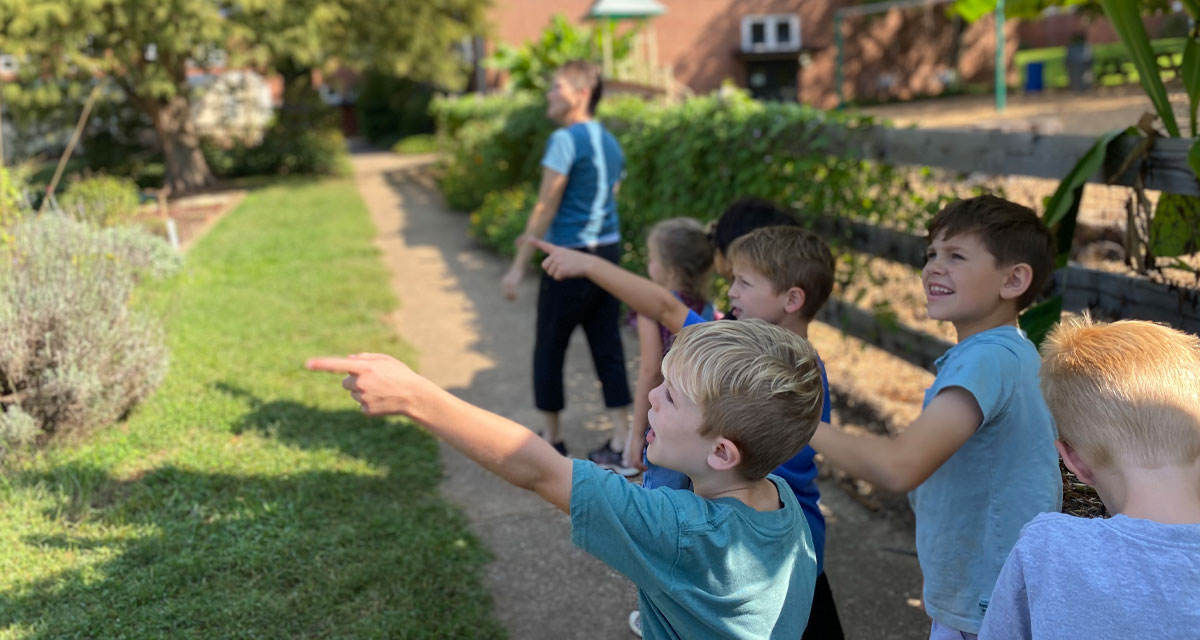By Kim Watkins, Redeemer School
Think of things you and your family do daily without thinking. Get out of bed, brush your teeth, get dressed, brew coffee, let the dog out … the list goes on. Can you imagine if you had to decide whether or how to do each of these things every day? Lucky for you, these activities have become habits – things you routinely do and are actually difficult to not do!
Habit formation is foundational to learning at Redeemer School. Our understanding of habits comes from 19th century British educator Charlotte Mason, who likened good habits to railroad tracks that keep us rolling in the right direction:
“Just as it is on the whole easier for the locomotive to pursue its way on the rails than to take a disastrous run off them, so it is easier for the child to follow lines of habit carefully laid down than to run off these lines at his peril. It follows that this business of laying down lines towards the unexplored country of the child’s future is a very serious and responsible one for the parent.” (Vol. 1, p. 109)
Habits give our brains a much-needed break, transforming otherwise stressful decisions into easy and automatic ones. Good habits can overpower our natural tendencies, and they allow us to reap rewards without a lot of conscious effort.
At Redeemer School, students focus on age-appropriate expressions of one common habit each month. In November we focus on the habit of imagining, which aims to form students who:
- Delight in tales of imagination,
- Express themselves freely through diverse and various mediums,
- Exhibit curiosity in learning, and
- Can form a mental picture of something that is not present.
It’s never too early (or too late!) to help your children build good habits. Here are some tips to get you started:
Focus on one habit at a time.
It can be overwhelming to think about the many wonderful habits we can teach our children. If you focus on one habit at a time, your children will soon have a wealth of good habits.
Think deeply about each habit.
Approach the habit you are building from multiple perspectives. Consider not only the active expression of the habit, but also the motive behind it. For example, when you practice the habit of punctuality by being on time for appointments and completing chores or schoolwork in a timely manner, consider also how punctuality communicates respect and love for others.
Be consistent with your expectations.
Building habits takes repetition, and you’ll get there most efficiently when your expectations are clearly expressed and consistently monitored. Extend grace to yourself and your kids as you tackle new habits, but remain committed to the task. Expect that it will take six to eight weeks of consistent repetition to build a new habit.
Set a good example.
Parents are a child’s primary teacher, and you can rest assured your children are paying attention to what you do at home. The strongest habits are picked up by close observation. If you want to teach the habit of tidiness, practice tidiness yourself. Children can even pick up the habit of cultivating good habits from you!
Encourage and motivate your child.
Inspire your child to learn a new habit by planting a seed in the child’s brain that makes the act worthwhile. Hero stories or inspirational tales can motivate children to see the value of a new habit. Reinforce that new habit with more engaging examples, prompt redirection, and deliberate praise.
“Sow an act, reap a habit; sow a habit, reap a character; sow a character, reap a destiny.” (Charlotte Mason, Vol. 6, p. 102)
Habits to Consider
The right habits for your family are the ones that make your life better. Charlotte Mason wrote about a variety of habits; here are some suggestions for you.
Decency and Propriety Habits
- Neatness
- Kindness
- Manners
- Orderliness
Mental Habits
- Attention
- Imagination
- Thinking
- Memorization
Moral Habits
- Integrity
- Obedience
- Self-Control
- Truthfulness
Physical Habits
- Fortitude (strength and endurance)
- Health (nutrition, exercise, hygiene, rest)
- Managing one’s own body
- Perception of the senses
Religious Habits
- Prayer
- Reading the Bible
- Praise
- A Reverent attitude
Redeemer School is a community of like-minded families committed to nurturing students in their relationship with Jesus Christ and engaging them in the life-long pursuit of wisdom and knowledge as they discover, embrace and integrate God’s truth in all of life. Learn more about us at redeemerschool.org and visit us during one of our Open House events!






















